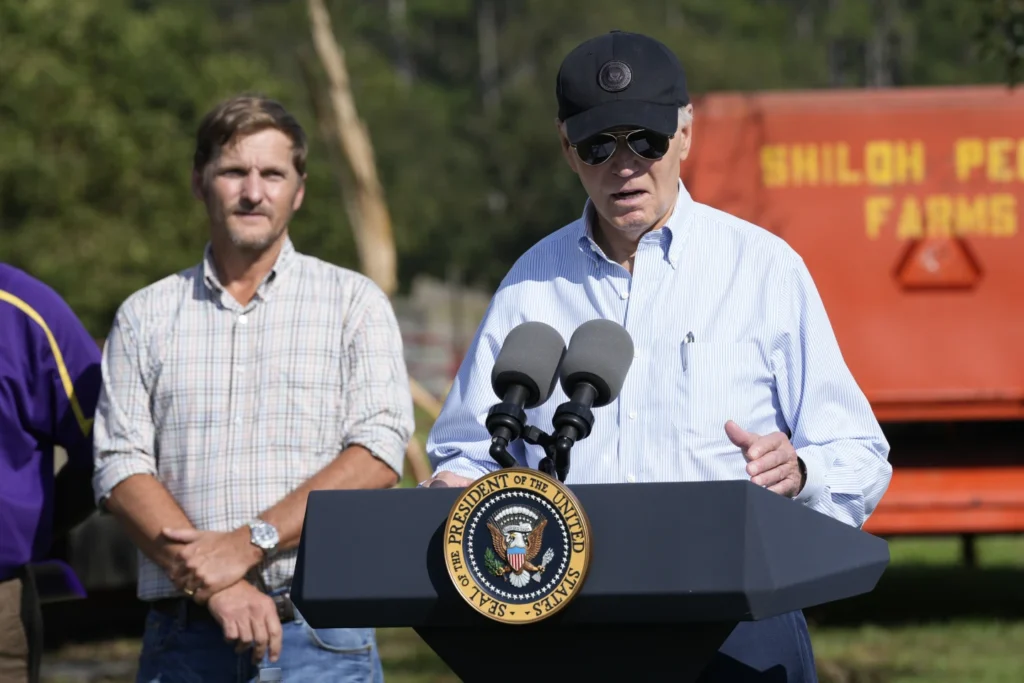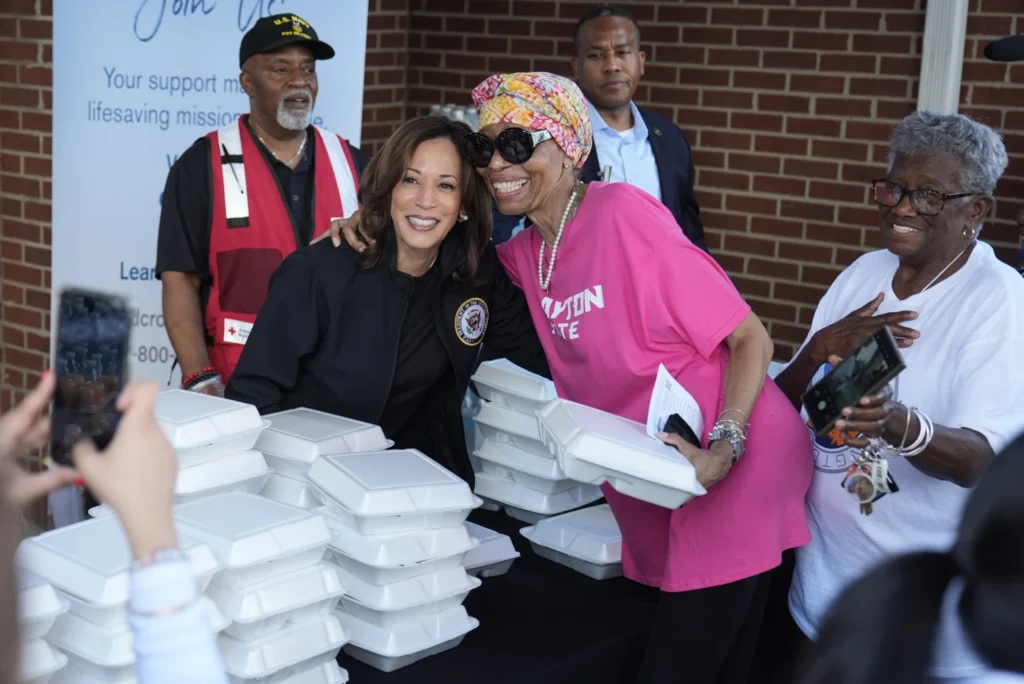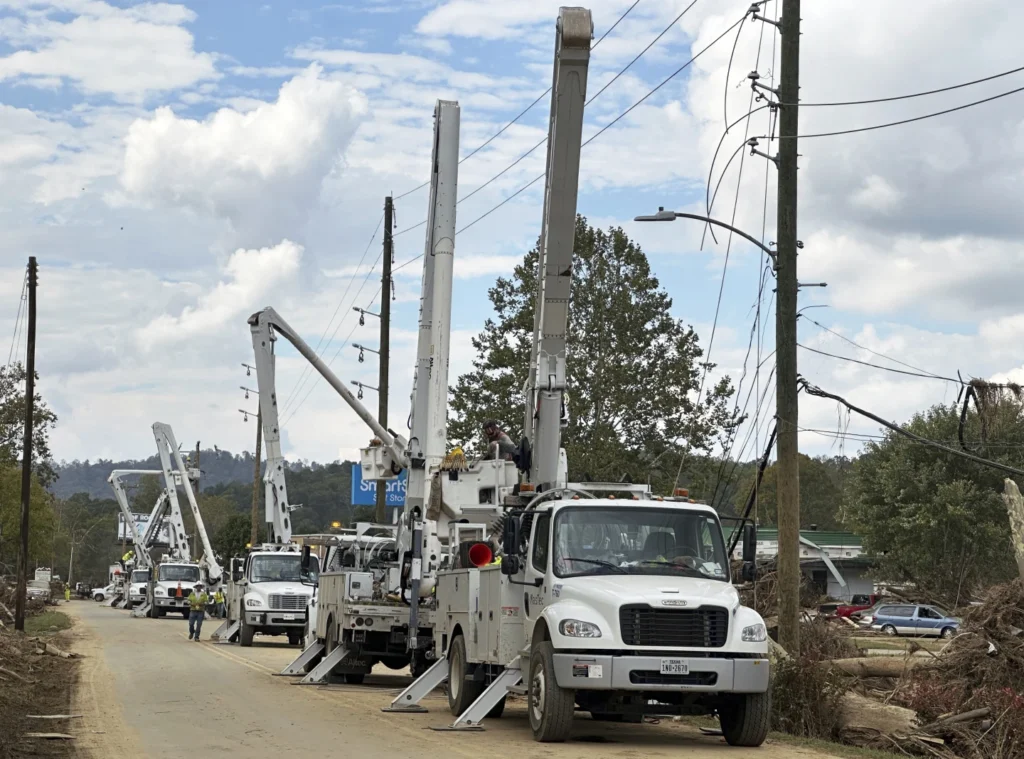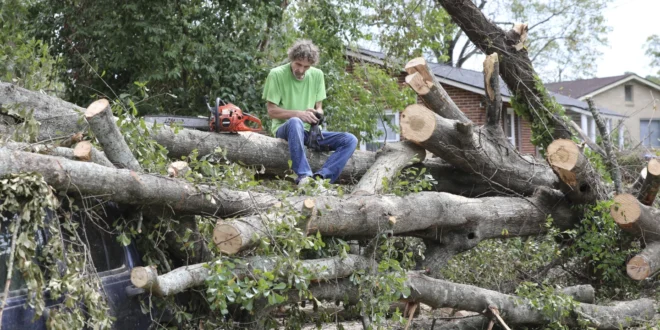ASHEVILLE, N.C. (mocsnews.com) – Hurricane Helene has left a trail of destruction across the Southeast, with recovery efforts underway to help those affected by the storm. As communities band together to rebuild, the focus is on providing immediate relief and long-term support to those in need.
Hurricane Helene, which made landfall in Florida as a Category 4 hurricane, has caused widespread flooding and destruction across multiple states. The storm has claimed over 190 lives, with hundreds still missing. The hardest-hit areas include North Carolina and Tennessee, where entire communities have been devastated by fast-moving floodwaters.
President Joe Biden visited several areas affected by Hurricane Helene. He toured Greenville, South Carolina, and later got an aerial view of the extensive damage in Asheville, North Carolina. He also had a briefing at the Emergency Operations Center in Raleigh, North Carolina. In response to the disaster, President Joe Biden has directed up to 1,000 active-duty soldiers to assist in aid efforts.
President Joe Biden said, “Families lost everything including loved ones, including family members. And I know it isn’t the first time. Just over a year ago, a major hurricane hit these same communities.”

Vice President Kamala Harris visited Augusta, Georgia, to meet with local officials and first responders. Harris talked about how grateful she is to see so many volunteers racing to these communities to help them.
Harris said, “You all leave home, you leave family members who are in need of help and support to go and help people who are perfect strangers to you. And you do this work in these moments of crisis around the clock with an intention and with a level of care and love for community that is unmatched.”
The North Carolina National Guard is working alongside federal agencies to deliver supplies, food, and water to isolated communities. FEMA has also granted over $45 million in disaster assistance to support survivors.
Recovery efforts are facing significant challenges, particularly in the southern Appalachians. Destroyed roadways and rocky terrain have made it difficult to reach some of the hardest hit areas. Volunteers at donation centers are working tirelessly to organize emergency supplies and provide aid to those in need.
Dolly Parton was one of the few celebrities to step forward with a donation to help. Local communities are coming together to support recovery efforts.

High schools have been turned into donation centers are serving as hubs for organizing supplies, and volunteers are working around the clock to assist those affected. Faith-based groups, nonprofits, and private sector organizations are also playing a crucial role in providing aid and resources.
Amid the recovery efforts, many families are grappling with the difficult decision of whether to rebuild their homes or relocate. The devastation has left them uncertain about the future, and the emotional toll is profound. Rebuilding requires significant resources and time, and for some, the prospect of starting over in a new place seems less daunting.

As the immediate response continues, the focus is shifting to long-term recovery and rebuilding. Efforts are underway to restore infrastructure, provide housing for displaced families, and support economic recovery in the affected areas. The resilience and solidarity of the communities are key to overcoming the challenges posed by Hurricane Helene.
The aftermath of Hurricane Helene is a testament to the strength and resilience of the affected communities. With federal assistance, local support, and the dedication of volunteers, the recovery efforts are making a difference. As the rebuilding process continues, the focus remains on providing relief and support to those in need. Below are ways you can help.
Ways to Help:
Donate: Contributing to reputable organizations such as the Red Cross, United Way, and local relief funds can provide much-needed financial support to those affected.
Volunteer: Offering your time to help organize supplies, assist in clean-up efforts, or support local shelters can make a significant impact.
Fundraise: Organizing community fundraisers or online campaigns can raise awareness and additional funds to support recovery efforts.
Provide Supplies: Donating essential items such as non-perishable food, water, clothing, and hygiene products can help meet the immediate needs of those affected.
Spread Awareness: Sharing information about the disaster and ways to help on social media can amplify the reach of relief efforts and encourage more people to get involved.
 Mocs News Reporting the news that matters most to UTC
Mocs News Reporting the news that matters most to UTC


